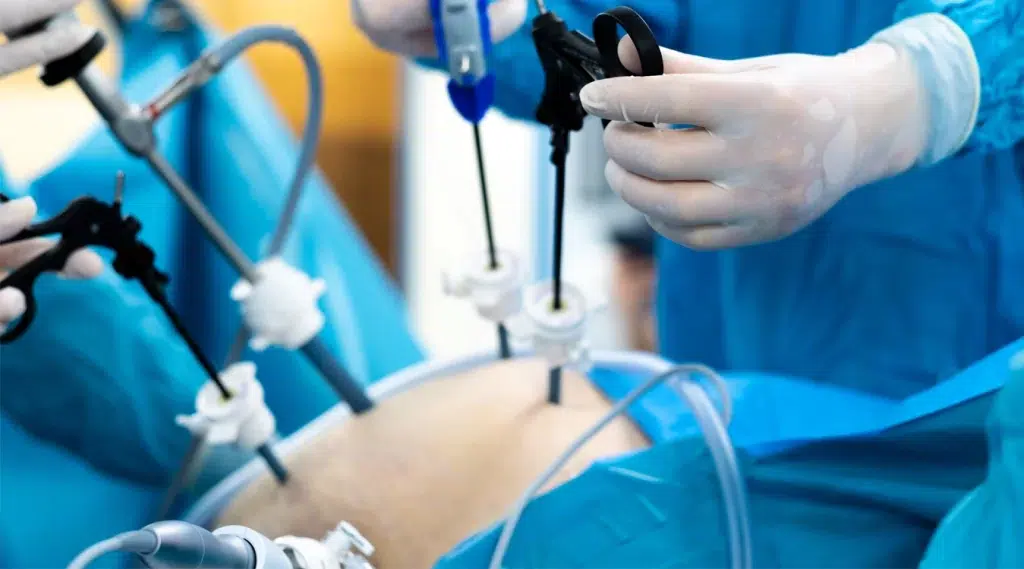Bariatric Sleeve Surgery, Its Requirements & Cost

Bariatric sleeve surgery has become one of the most commonly performed weight loss surgeries. It is a promising option with a high success rate and relatively low complication risks. If you have been struggling with obesity, bariatric sleeve surgery might be the life-changing solution that can help you improve your overall health and achieve sustainable weight loss. Here, we will provide you with a guide on bariatric sleeve surgery, its requirements & cost. Dr. Jorge L. Sosa is an experienced and skilled bariatric surgeon specializing in bariatric sleeve surgery and providing patient-centered medical care.
What Is Bariatric Sleeve Surgery?
This is a surgical procedure that is a minimally invasive weight loss procedure that involves removing approximately 75% to 80% of the stomach. This procedure is also known as sleeve gastrectomy. Unlike gastric bypass, sleeve gastrectomy does not involve rerouting the intestines. This treatment procedure helps patients lose sustainable weight, preserves the natural digestive flow, and improves obesity-related issues, including hypertension, sleep apnea, and type 2 diabetes.
Who Is a Candidate for Bariatric Sleeve Surgery?
Not every individual struggling with weight needs to qualify for sleeve gastrectomy. Professional surgeons, such as Dr. Sosa, take time to evaluate each patient carefully based on the following criteria:
Body Mass Index (BMI):
- BMI of 40 or higher (extreme obesity)
- BMI of 35–39.9 with at least one serious obesity-related condition
Health Conditions: Associated conditions such as diabetes, high blood pressure, or obstructive sleep apnea increase eligibility.
Previous Weight Loss Attempts: Candidates should have tried and failed with exercise programs and expert diet plans.
Mental Readiness: Properly understanding of commitment and psychological stability is required.
Age Considerations: Typically between 18 and 65 years, although several exceptions are based on individual evaluations.
What to Expect Before the Surgery
Patients go through a detailed pre-operative process before undergoing surgery to make sure that the patient is ready and to lower surgical risks:
1. Initial Consultation: Specialists like Dr. Sosa conduct an in-depth consultation to evaluate medical history, lifestyle, and overall health and offer personalized treatment plans and postoperative medical care.
2. Nutritional Counseling: To prepare the stomach for surgery, the patient must follow a pre-operative diet to shrink the liver. Getting professional guidance on meal plans and food choices from a registered dietitian is crucial.
3. Psychological Evaluation: Psychological assessments are taken to ensure that patients are emotionally ready for surgery and for making lifelong changes.
4. Medical Tests: Some medical tests are conducted, such as routine labs, ECG, chest X-rays, and sometimes endoscopy, to ensure the safety of the patient.
The Procedure: How Bariatric Sleeve Surgery Is Performed
Dr. Jorge L. Sosa is an expert bariatric surgeon specializing in bariatric sleeve surgery, in which a minimally invasive approach involves small incisions and faster recovery.
Step-by-Step Overview:
Anesthesia: General anesthesia is given to make sure that the patient feels no pain during the procedure.
Incisions: In the abdomen, small incisions are made.
Stomach Reduction: This procedure removes around 75% to 80% of the excess weight by using surgical staplers.
No Rerouting: In this procedure, no rerouting of intestines is made, which makes it simpler than gastric bypass.
Closure: Incisions are closed, and patients are moved to a recovery room.
The entire bariatric sleeve procedure usually takes 60 minutes or less, and most patients stay 1 to 2 nights in the hospital after surgery.
Recovery Process & Post-Operative Care
Professional bariatric surgeons such as Dr. Sosa provide personalized post-operative guidance to ensure a better and smoother recovery.
Immediate Post-Surgery
After surgery, it is recommended that the patient begin with a clear liquid diet and gradually transition through phases. Also, discomfort and pain are common, which can be managed with medications.
Recovery Timeline
- After Weeks 1 to 2: Rest, hydration, and liquid diet.
- After Weeks 3 to 4: Soft foods and light activity.
- After 1 Month: Return to normal activities or work with dietary adjustments.
- After 3 to 6 Months: Noticeable weight loss and improved energy levels.
Follow-Up Appointments
Regular follow-up is recommended to monitor weight loss, nutrition, and psychological well-being. Taking nutritional supplements such as multivitamins, calcium, and B12 is recommended for better recovery and long-term benefits.
Expected Results and Benefits
Bariatric sleeve surgery offers dramatic and sustainable weight loss outcomes.
Weight Loss Expectations:
- Within the first 12 to 18 months, Patients lose around 60-70% of excess weight.
- With lifestyle adherence, some patients continue losing beyond that timeframe.
Health Improvements:
- Type 2 diabetes: High remission rates
- Hypertension: Often reduced or eliminated
- Sleep apnea: Significant improvement
Joint pain, cholesterol, and fertility issues may also improve.
Quality of Life Benefits:
- Improved mobility and physical activity
- Enhanced mental health and self-esteem
- Reduced risk of obesity-related diseases
Cost of Bariatric Sleeve Surgery
The average cost of bariatric sleeve surgery ranges from $10,50 to $15,000, and it may vary depending on factors such as hospital fees, surgeon’s experience, and insurance coverage.
The cost of bariatric sleeve surgery also includes:
- Surgeon’s fee
- Hospital stay and surgical facility
- Anesthesia and medical supplies
- Pre-operative tests and post-op care
- Nutritional counseling and follow-ups
Why Choose Dr. Jorge L. Sosa For Bariatric Sleeve Surgery
Dr. Jorge L. Sosa is one of the most experienced and trusted names in bariatric surgery. With over two decades of experience. There are several reasons for choosing Dr. Sosa for bariatric sleeve surgery, including:
- Performing thousands of successful weight loss surgeries
- Specializing in minimally invasive and robotic-assisted techniques
- Providing a personalized, compassionate approach to patient care
- Offering multilingual support for diverse communities in Miami
Frequently Asked Questions About Bariatric Sleeve Surgery, Its Requirements, & Cost
Question 1. What is the major difference between gastric bypass surgery & gastric sleeve?
Answer. Gastric bypass involves creating a small stomach pouch and bypassing part of the digestive tract, whereas gastric sleeve reduces stomach size without rerouting the intestines.
Question 2. How much weight do you expect to lose after sleeve gastrectomy?
Answer. After sleeve gastrectomy, you can expect to lose 60% to 70% of your excess weight within the first 12 to 18 months.
Question 3. Am I eligible for bariatric sleeve surgery if my BMI is under 40?
Answer. Yes, if you have a BMI of 35+ and obesity-related conditions such as hypertension, type 2 diabetes, sleep apnea, etc.
Question 4. How long does the surgery take, and will I need to stay in the hospital?
Answer. Bariatric sleeve surgery typically takes around 60–90 minutes, and most patients stay 1 to 2 days in the hospital for post-operative medical care.

